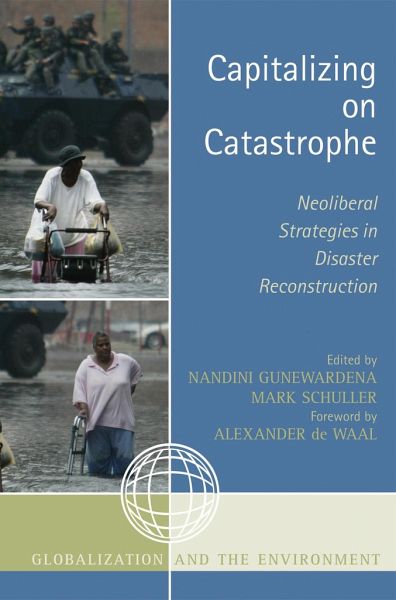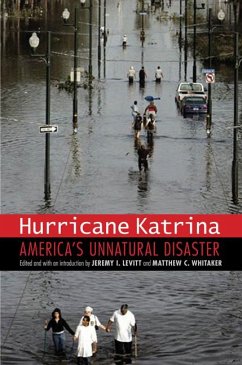
Capitalizing on Catastrophe
Neoliberal Strategies in Disaster Reconstruction
Herausgeber: Gunewardena, Nandini; Schuller, Mark
Versandkostenfrei!
Versandfertig in über 4 Wochen
156,99 €
inkl. MwSt.

PAYBACK Punkte
78 °P sammeln!
Capitalizing on Catastrophe critically explores the phenomenon of 'disaster capitalism, ' in which relief efforts for natural disasters and other large-scale disruptions are contracted out to private companies












